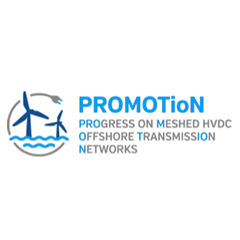- Offshore wind energy expansion in the North Sea is crucial to achieve Paris’ climate targets
- PROMOTioN partners call for far-reaching regional cooperation and coordination on offshore wind farm and grid infrastructure roll-out
- Solutions for overcoming regulatory differences have been identified, along with next steps for important stakeholders
Arnhem/Berlin, 6 November 2019. Countries around the North Sea need to implement a harmonized regulatory and economic framework to fully exploit the potential of a meshed offshore grid in the North Sea. This is a key conclusion of the EU-funded research project PROMOTioN (Progress on Offshore Meshed HVDC Transmission Networks).
Tim Meyerjürgens, COO at TenneT, stresses: “The development of a cross-border HVDC grid is one of the most promising opportunities for a sustainable energy future in Europe. TenneT is cooperating closely with other TSOs to develop the idea of a meshed and efficient offshore grid in the North Sea, which requires the creation of a common regulatory framework. PROMOTioN’s research shows the way to make this happen.”
Similarly Ditlev Engel, CEO of DNV GL Energy, states: “The development of a reliable transnational European offshore transmission grid is a key enabler for a successful, cost effective and timely energy transition. This project delivered a great framework with regulatory and financial guidelines for national governments to speed up collaboration on the joint development of energy infrastructure such as offshore transmission grids. And that is really needed to accommodate the rise of renewables and meet our goals in the Paris Agreement.”
PROMOTioN’s latest report, “D7.9 Regulatory and financing principles for a meshed HVDC offshore grid”, summarizes the key findings on the design of a legal, regulatory and financing framework for cross-border HVDC offshore connections and provides recommendations for policy makers and other stakeholders to take appropriate measures to enable the first hybrid assets to be built.


























